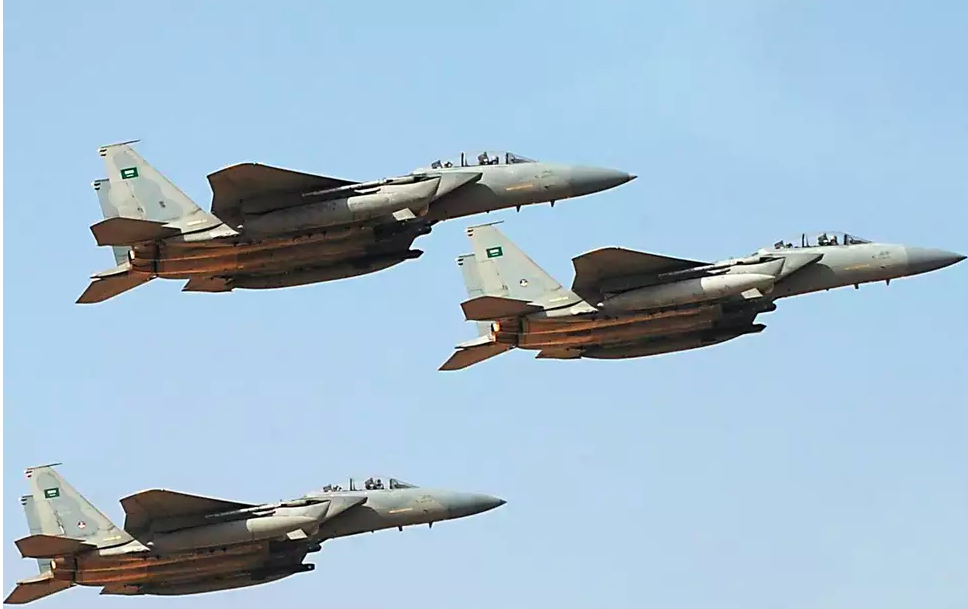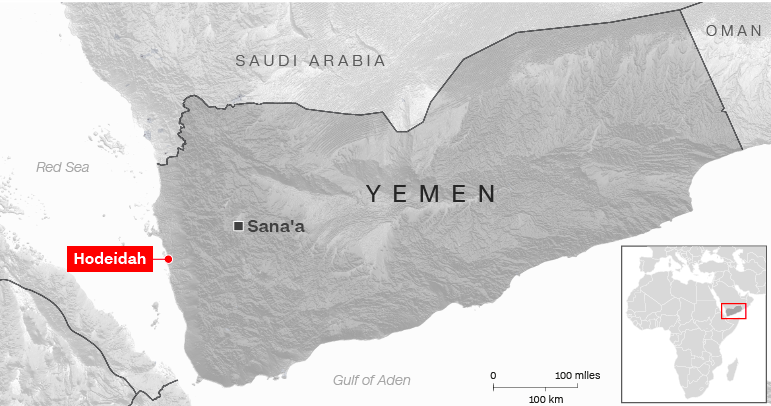US Stops Inflight Refueling of Saudi jets
November 13, 2018 | Expert Insights

Amid outrage over the killing of journalist Jamal Khashoggi and growing international concern over the harm caused to civilians in the Yemen civil war, the United States decided to stop ‘inflight refuelling’ of Saudi-led coalition jets in Yemen. The gesture seems unlikely to significantly affect the crisis.
Background
The modern Republic of Yemen, one of the world’s poorest countries, has been devastated by the war between forces loyal to the internationally recognized government of President Abdrabbuh Mansour Hadi and those allied to the Houthi rebel movement. The Yemen Civil war began in 2011 with the Arab Spring protests that led to the fall of the then President Ali Abdallah Saleh on charges of corruption and economic grievances. Hadi, his deputy minister at that time, took over the region. However, the increasing political instability in Yemen paved the way for the Houthi, representing the Shiite minority to take over the territory.
A military intervention was launched by Saudi Arabia in 2015, to influence the Civil War in Yemen. A two-year Saudi-led campaign has damaged infrastructure and caused a shortage of food and medicine. Reports have also emerged that there are players within Yemen who actively sponsor terrorism by funding activities conducted by ISIS.
Since 2015 the country has been engaged in a civil war in which the exiled government backed by Saudi Arabia is trying to defeat the Houthi group aligned with Iran. Saudi Arabia, backed by the U.S., the U.K. and France, used air strikes and a blockade of goods, including food, to support Yemen’s internationally recognized government against the Iran-backed rebels. For three years, the United States has supported Saudi Arabia in a war against the Houthi movement in Yemen. The war has created the worst humanitarian catastrophe in the world and threatens to turn into the largest famine in decades. On 30 October, US Secretary of Defence Jim Mattis made history by setting a 30-day deadline for peace negotiations. Two days after the U.S call for a cease-fire, the Saudi-led coalition launched a fresh offensive in Yemen.

Analysis
On 11 November, the US decided it would stop the “inflight refuelling” of Saudi-led coalition jets in Yemen amid growing anger over civilian casualties from the kingdom’s air strikes. The decision by Americans to pull out also comes amid outrage by US politicians from both political parties over the killing of Washington Post columnist Jamal Khashoggi at the Saudi consulate in Istanbul.
The Saudis said it had “requested cessation of inflight refuelling” by the US, which appeared to suggest it was the kingdom was behind the decision.
“We support the decision by the kingdom of Saudi Arabia, after consultations with the US government, to use the coalition’s own military capabilities to conduct inflight refuelling in support of its operations in Yemen,” US defence secretary Jim Mattis said in a statement. “The US will also continue working with the coalition and Yemen to minimise civilian casualties and expand urgent humanitarian efforts throughout the country.”
The gesture is an opportunity to express disapproval over the killing of journalist Jamal Khashoggi, but will not disrupt the kingdom’s strategic trajectory. It is also a way for the united states to show its disapproval that soon after the US called for a ceasefire in the Yemen war, the Saudi-led coalition launched an air and ground assault on the port of Hodeida, which is held by Iranian-backed Houthi rebels.
It also distracts attention from the fact that the French and British, just like their US allies, are continuing much more important military support for the Saudi side in the war.
There is much more that could be done. The US is the major supplier of munitions to the Saudi Air Force, and also supplies military intelligence. The United Kingdom and France also provide weapons to Saudi Arabia. In addition, the United Kingdom has been helping with what the military calls "battle damage assessment" (the aftermath of fighting and bombing), while France has sent specialist naval warfare advisers to the coalition side to help prevent seaborne attacks and mining operations by the Houthis.
Assessment
Our assessment is that the United States' decision to end airborne refuelling support to Saudi Arabia for its war in Yemen might not be militarily significant. We believe that ending refuelling might be the first stage in a greater effort to force the Saudis to the negotiating table, along with their allies from the Yemeni government, the United Arab Emirates, Sudanese forces and an assortment of militia groups, including radical Salafist organizations.








Comments